As we swing at anchor in Kangiqtugaapik—in Inuktitut—also known as Clyde River, Patricia Inlet on Baffin Island, the wind howls through the rigging at a steady 22 knots, gusting over 30. One Ocean creaks, and I hear the water lapping against her hull. I’m curled up in my bunk. The crew is still asleep, the boat quiet. Once again I find myself reflecting on how remote we are—even though an Inuit village is nestled in this inlet.
In a week we’ll see more obvious signs of civilization, but for now, and so far for much of this voyage, the bays are quiet and desolate. It feels like the most isolated I will ever be in my life, and I’m relishing it.
We arrived at 9 p.m. Eastern time, under a full moon that lit the inlet as we crept through dark, choppy waters. With the forecasted winds picking up, we decided to tuck in and rest. On the chart, it looked like the nearest inlet off Baffin Bay, but Baffin Island is huge and it still took us hours to reach—and we arrived in darkness.
I was at the helm while others scanned for ice. I steered toward the faint lights of Kangiqtugaapik, a small Inuit village at the river’s mouth. We couldn’t make out details, so we anchored by feel and with the help of charts.
This leg of the journey brought new energy onboard. Volunteer Bob Rosain joined us—a dear friend and one of the driving forces behind One Ocean’s refits. His generosity, skill, and kindness have been invaluable. Last night, as the anchor set and the wind built, we all gathered in the cabin with the red lights glowing. Mark, in his usual way, kept us entertained with stories while Bob settled into life onboard. I was so glad he could experience the boat he helped shape.
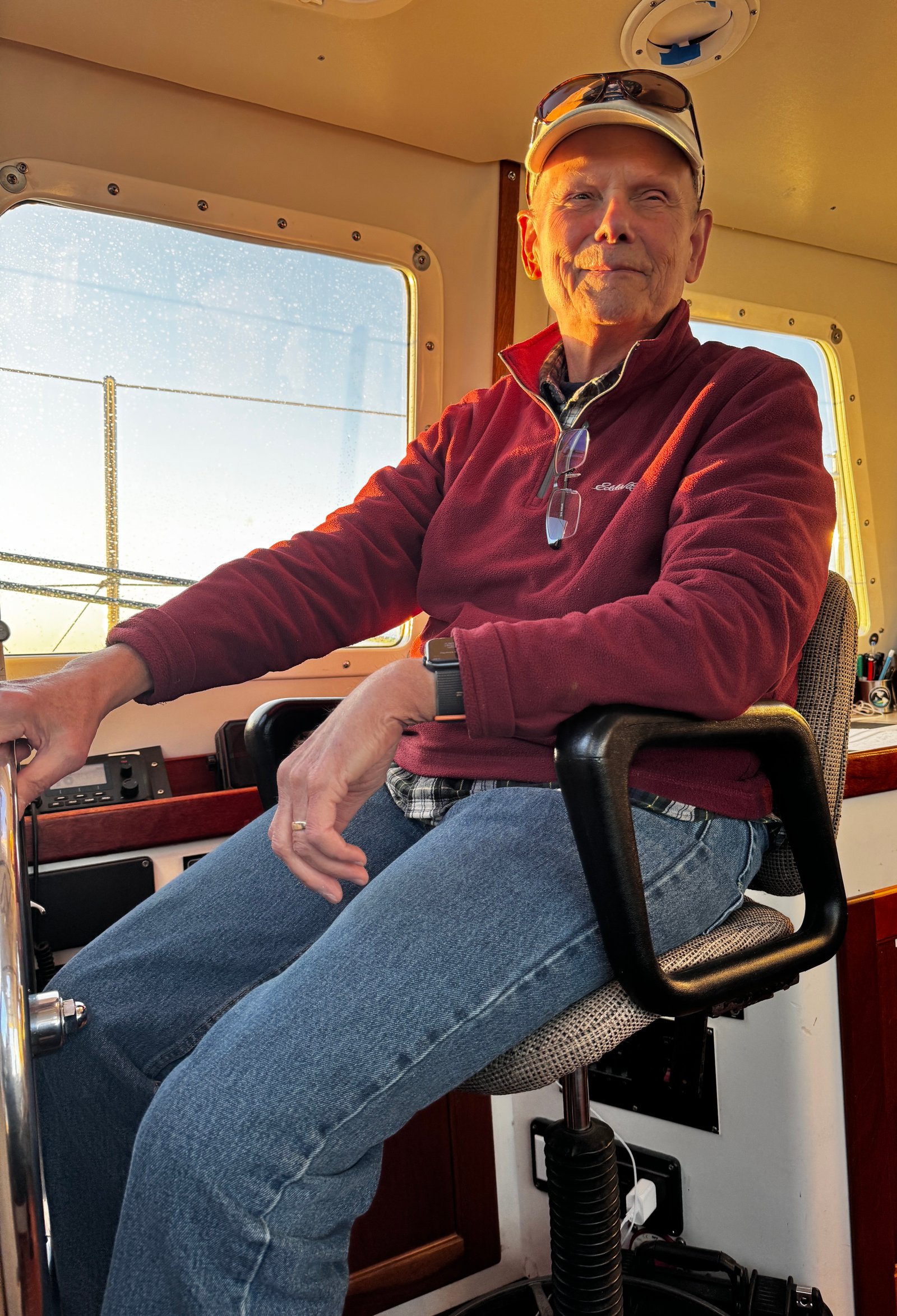
I often wish every volunteer could sail with us, to feel what their work has made possible.
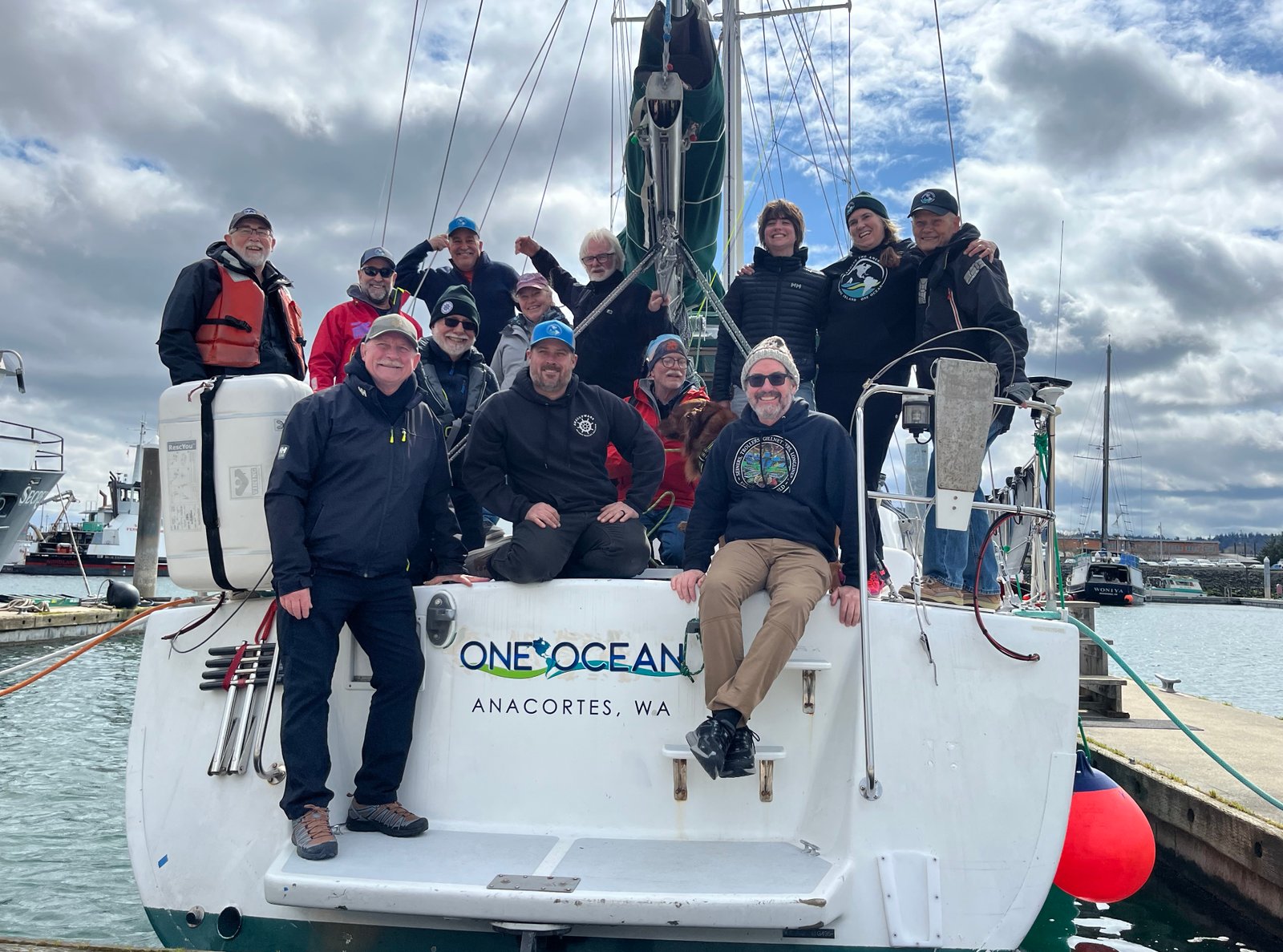
Because truthfully—we are all volunteers. None of us are here for pay. We’re here because we believe in the vision. I left a secure, fulfilling job in a school district to make this happen. It felt less like a choice and more like being carried by something larger—an obsession, a calling, a dream.
A few years ago I wrote in my journal that I needed to bring sailing back into my life. I had no idea how far that intention would carry me. But pursuing this dream hasn’t come without sacrifice. At my age, when you’ve built a life, a community, and a family, leaving isn’t easy. Life goes on without you—including painful news. Some days I feel selfish for putting myself first, for being here when others need me back home. And yet I know this is what it takes.
Part of “this” is showing my kids what it means to live your dream. I couldn’t tell Grace and Aidan to pursue their passions if I wasn’t willing to do the same.
I also wrote in my journal about the earth I was leaving for them. Both kids took environmental science classes, where teachers began the year with warnings: What you’re about to learn is disturbing and depressing. Counseling is available if you need it. What!? The reality was stark: the world is changing so quickly that many of the impacts we face may already be irreversible. I realized I hadn’t done enough—not for them, not for the next generation.
Weeks after that journal entry, I met Mark Schrader and sailed with him and Herb McCormick. I heard their firsthand accounts of the Around the Americas expedition, which raised awareness of ocean change. That was it. I was all in. I wasn’t wealthy—probably not even middle class, could I really leave a good job right now? But I believe in service. And once I made the choice, the right people appeared, giving freely of their time and skills to help us launch this incredible goal.
All five crew members gave up something to be here. This expedition isn’t backed by corporations—it’s grassroots, supported by individuals like you. We’re here to say education matters. Research matters. Our oceans matter. The communities already living with the impacts matter.
My daughter reminds me often: We’re just five hippies doing the best we can. It grounds me on the hard days.

And we do need help. The program has grown, with a calendar full of live online classrooms, in-person school visits, and presentations. It’s exhilarating but overwhelming, especially from the deck of a small boat in big seas. Tools like Starlink are essential for connecting classrooms, but they’re expensive. Even basic costs—travel, printing, software—add up. We’d love to expand our reach by translating materials into the languages spoken across the Americas.
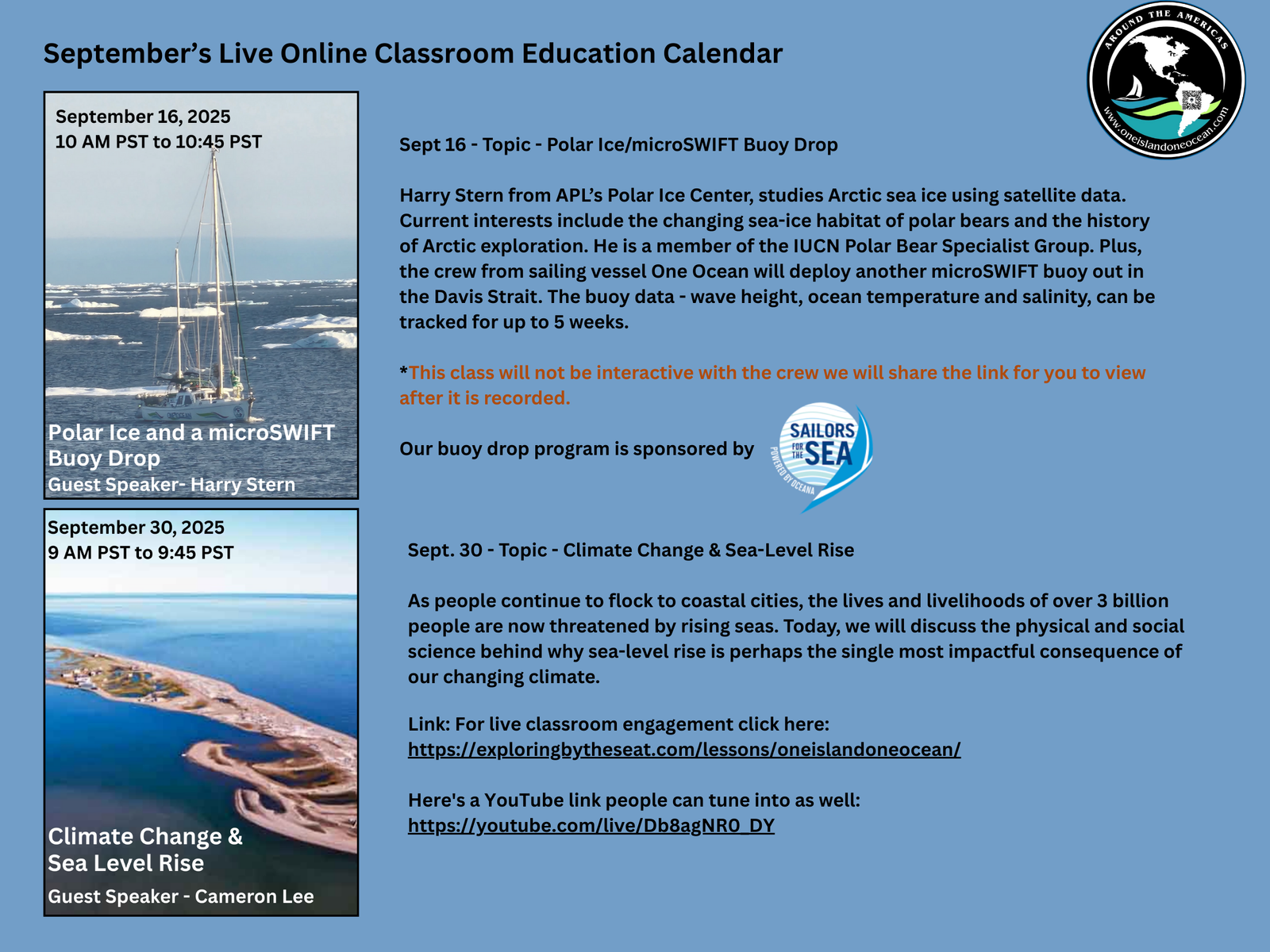
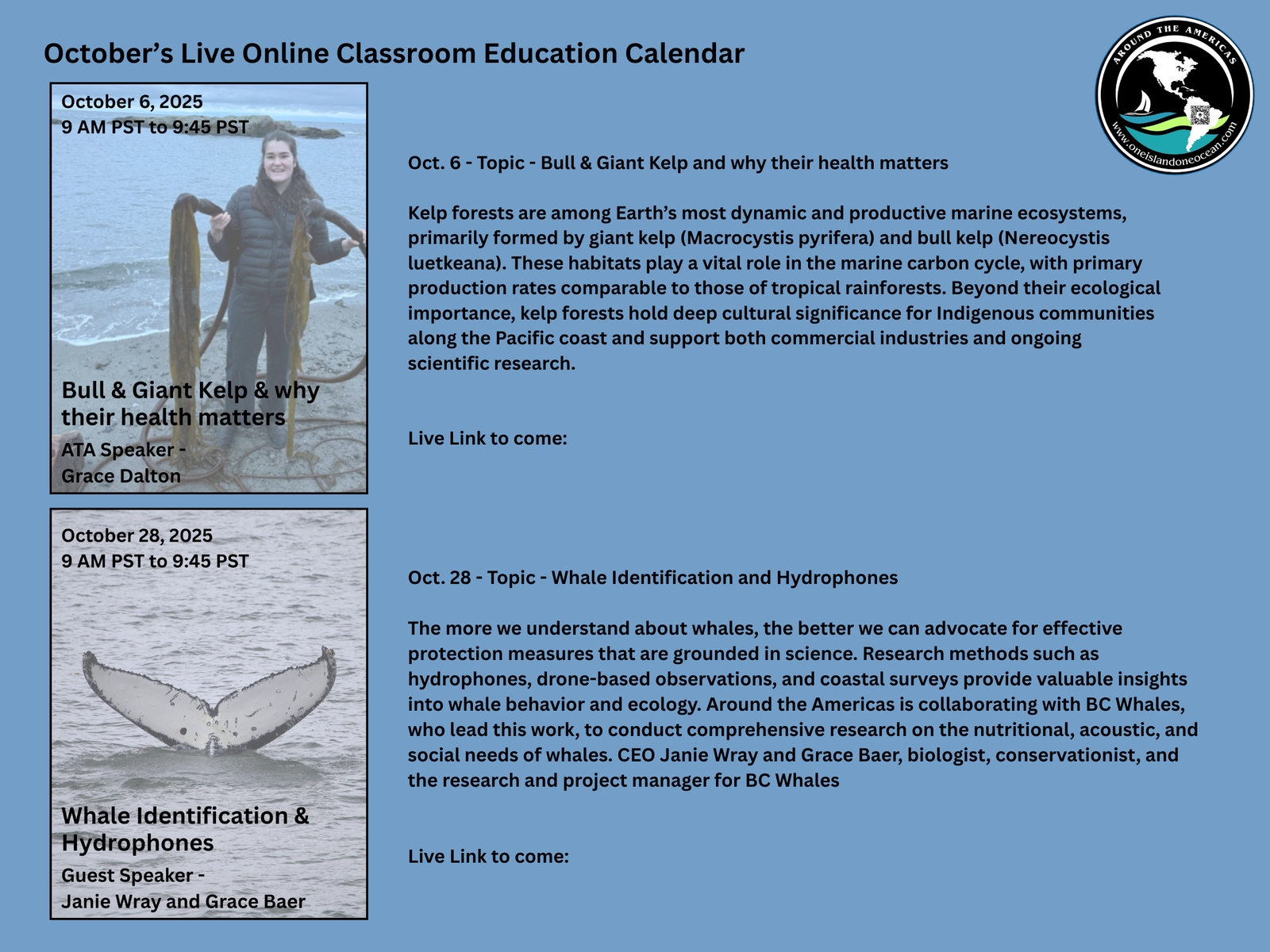
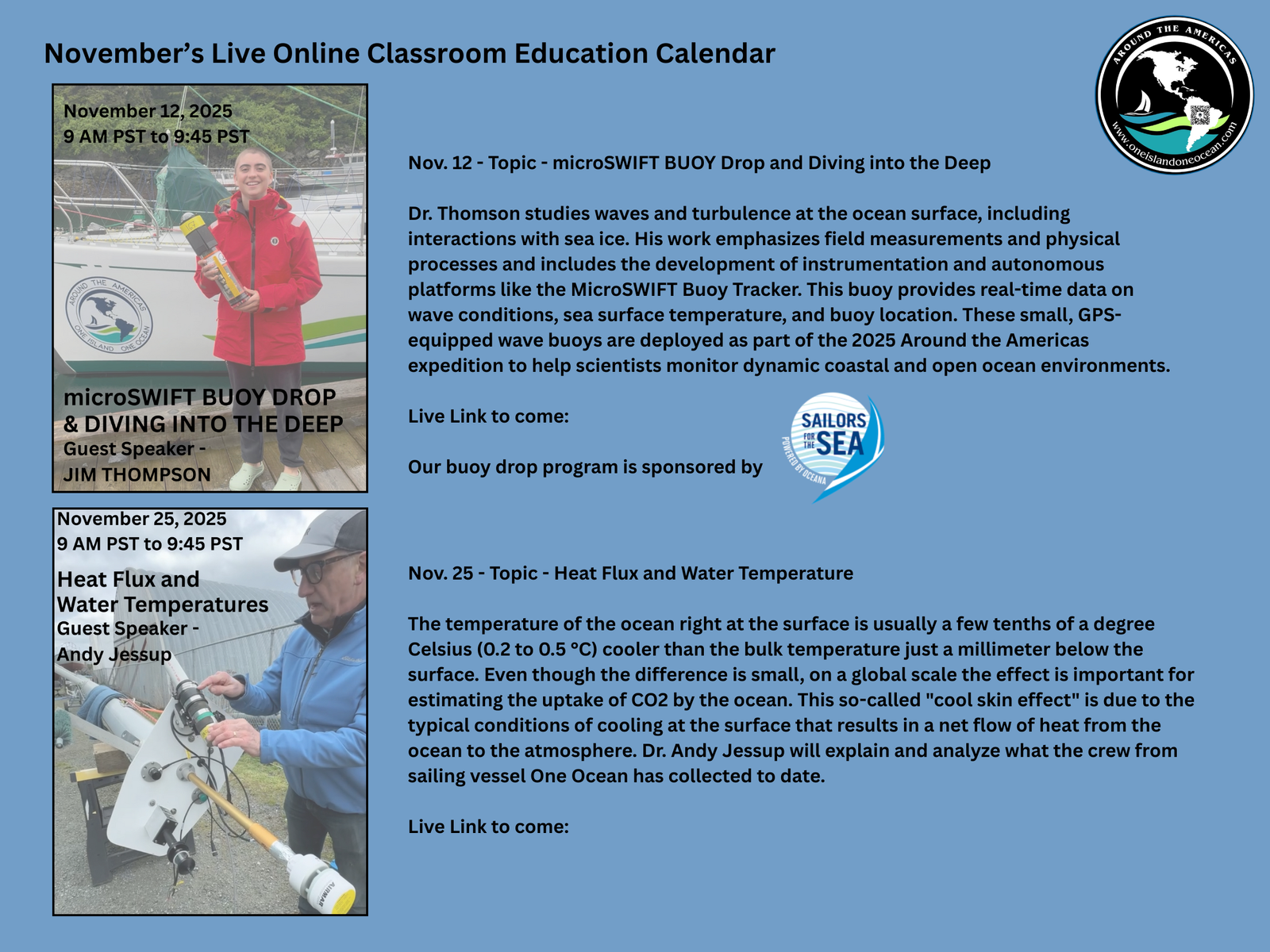
Our in person classroom presentations are filling up as well! We have most of the East Coast of Canada and the United States already filled!
If you believe in what we’re doing, please consider supporting us—whether $10, $20, or $100. We accept Venmo, PayPal, checks, and donations through the Skagit Valley College Foundation, a registered nonprofit. Sponsorship opportunities are also available; email me directly (atamericasjd@gmail.com) if you or someone you know might be interested. Your support is greatly appreciated!
If financial support isn’t possible, simply following along means so much. Your encouragement lifts our spirits. Subscribing to our YouTube channel helps immensely too.
To all our volunteers: thank you. You are part of this crew. We talk about you often, and you’re with us in spirit.
We’ve already completed over 6,000 miles of this journey, pouring heart and effort into every mile. Our hope is that through this project, we inspire the next generation of ocean stewards—because our ocean needs them.
Thank you.
